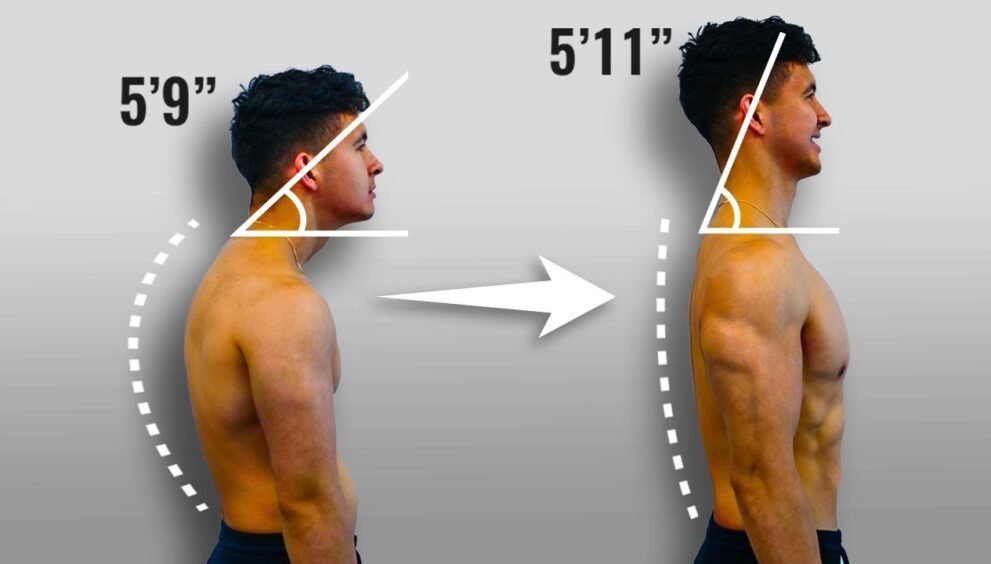Does Losing Weight Make You Taller? Discover the Surprising Truth

A common question among those trying to shed some pounds is whether losing weight can truly make you taller. After all, many people associate height with youth and vitality, and losing weight might seem like it could have some unexpected benefits beyond just physical appearance. In this blog, we will explore this question in-depth and provide a clear answer grounded in science. The idea of weight loss affecting height may seem curious, but we’ll break down how body composition and posture may impact your perceived height. Let’s dive into the truth behind the claim: Does losing weight make you taller?
The Relationship Between Weight Loss and Height
At first glance, it appears logical that losing weight might increase height, especially since excess weight can put pressure on the body. However, the physical height of a person is largely determined by factors such as genetics, bone structure, and age. Unfortunately, regardless of how much weight you lose, your bones, especially the bones in your legs and spine, do not elongate after you stop growing during your teenage years. So, how could weight loss potentially make you appear taller?
The Role of Posture in Perceived Height
One of the ways that weight loss can lead to a “taller” appearance is through improvements in posture. As individuals lose weight, especially around the stomach and lower back, they may experience a reduction in the forward curve of their lower back (also called lordosis). This adjustment can make them stand straighter and more upright, which can add a couple of inches to their perceived height.
For example, when someone carries excess weight in their abdominal area, the added weight can pull the body forward, causing a slouching posture. This poor posture can actually make you appear shorter than you are. Once the weight is lost and the body naturally adjusts to a healthier position, the spine may straighten, thus making you appear taller.
The Impact of Spinal Compression
Our spines naturally compress throughout the day due to gravity and the weight of our bodies, which can result in a slight reduction in height by evening. This is a regular process, and our bodies naturally “rebound” at night while we sleep. However, carrying excess weight, particularly around the belly, can contribute to added pressure on the spine, leading to a greater compression of the discs and a decrease in height, even by a few millimeters.
When individuals lose weight, especially belly fat, the pressure on the spine is reduced. As a result, they may notice a slight increase in height as the spine decompresses, both during and after weight loss. This effect is generally subtle but can be significant for people who have been carrying extra weight for years.
Weight Loss and Bone Health
While weight loss might not directly increase your skeletal height, it can have an indirect impact on bone health. For people carrying excess weight, particularly those who are obese, the constant strain on the joints, especially the knees, hips, and spine, can contribute to long-term damage or osteoarthritis. This can lead to poor posture or even a slight reduction in height due to damage to the vertebrae and joints.
Losing weight can reduce this stress, potentially improving mobility and flexibility. Healthy bones and joints are key components of maintaining a strong posture, which, as mentioned earlier, can improve your overall appearance of height.
Can Losing Weight After Growth Spurts Affect Height?
For children and teenagers, weight loss during the growth period can indirectly help support optimal growth. While losing weight doesn’t cause a direct increase in height, maintaining a healthy weight during adolescence can promote better posture, support joint health, and help prevent any abnormal stress on the growing bones. Therefore, losing weight as a teenager may assist in reaching your natural genetic height potential.
However, once the growth plates close after puberty, no amount of weight loss will increase your height. The bones have already reached their full length, and at this point, losing weight can only help enhance your posture and overall body shape.
The Importance of Strength Training in Height Perception
Another important factor in weight loss and perceived height is strength training. Resistance exercises, particularly those that target the core, back, and lower body, can help to improve posture and build muscle, contributing to a taller appearance. Strength training also plays a crucial role in maintaining bone density, especially during weight loss, to avoid muscle and bone loss, which can otherwise lead to stooped posture.
Strengthening the muscles around the spine and abdomen can also prevent slouching, further helping individuals appear taller by supporting proper alignment and posture.
Expert Opinion on Weight Loss and Height
Dr. Matthew D. Miller, an orthopedic specialist, explains: “While losing weight might not directly affect a person’s height, the reduction in pressure on the spine and joints can improve posture and spinal alignment. Over time, this can make a person look taller.” This expert insight highlights how posture and spinal health are critical to the appearance of height, showing that weight loss could indeed lead to a more upright stance and potentially add a few inches to one’s perceived height.
Conclusion – Does Losing Weight Make You Taller?
So, does losing weight make you taller? While the answer is no in the strict sense, weight loss can significantly improve your posture, spinal health, and joint mobility, which can enhance your overall appearance and make you seem taller. The most noticeable effects are seen in those who lose excess belly fat, which relieves pressure on the spine and contributes to better alignment.
Ultimately, your height is determined by genetics and bone structure, but maintaining a healthy weight can ensure that you stand as tall as possible, both in stature and in confidence. Weight loss can help you achieve your optimal posture, contributing to a taller appearance and overall improved physical health.
Remember, the goal of weight loss should always focus on health, fitness, and well-being, not solely on achieving a taller height. The benefits of losing weight are vast, from improved energy levels to better heart health, and standing taller with improved posture is just one of many rewards.








































































































































































































































































































































































































































































































